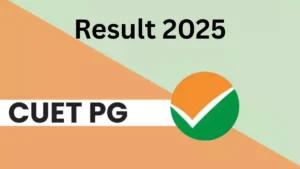Table of Contents
A correct strategy, consistent preparation, and good quality study material can ensure your 100+ marks in the CLAT 2026 exam. 100 and higher scores will help you to get into the 25 most prestigious National Law Universities (NLUs). Follow some Proven Tips and Tricks and a subject-wise approach during your CLAT Prep to crack the exam with top rank.
How to Score 100+ in CLAT
CLAT is one of the thought entrance exams in India, so it will take a lot of hard work throughout the year to receive a score of 100+ marks. Candidates must include Daily practice, reading newspapers, analysis of past years’ question papers, solving math problems, adequate revision, memorizing tons of current affairs, and being up to date on current events and some of the approaches to obtain 120 marks in the CLAT 2026 exam. Read the article below to learn how to obtain 100+ in CLAT 2025. Find out more information about
What is the Right Time to Start Preparing for CLAT 2025 to Score Higher?
Many beginners ask what it is best to begin your CLAT preparations. The best time to begin your preparations is when you are in class 11 as you will be eligible to take the exam after 1 year. If you are in class 12 and deciding to participate, plan well the studies with your board exam. Many students also take a drop year to prepare. Overall it will take almost one complete year to prepare comprehensively.
Tips and Tricks to Score 100+ in CLAT
If you want to take the CLAT exam in 2026, you are in a good position. A year is more than enough time for optimal preparation. You need to follow the important tips and tricks and avoid some mistakes during this journey.
- Plan your study schedule by “subject,” and split your study time accordingly. Invest more time in weak subjects.
- Check the complete CLAT Syllabus, exam pattern, and exam dates to better understand how to plan your study month-wise.
- Clear your basics from books or from concept videos of English, Legal Reasoning, Logical Reasoning, General Knowledge, and Quantitative Techniques.
- Create a study strategy for the next 6 months or 12 months till December 2025.
- Break monthly targets into weekly and Try to set your daily to-do lists and schedule time for revision at the end of the day.
- You should also practice the previous year’s CLAT Question Papers, and revise. It will also help you identify what types of questions are coming and how to tackle them.
- Make your personal notes while studying. These notes can be used during revision to help you prepare in less time.
- Make an effort to attempt as many questions in CLAT mock and sectional tests. Take at least 3 CLAT Mock Tests every week to analyze your performance. After finishing each mock, review your performance and work on your weaker areas.
- It’s critical to properly evaluate your preparation from time to time. If you have a backlog. Make new plans to cover them.
- Practice is the most important thing to boost your marks. Make sure you never stop practicing during this time. You may miss many of your errors and, create a habit of utilizing the incorrect methods.
Subject Wise Strategy to Score 120 in CLAT
How to Increase Marks in the English Section in CLAT?
Achieving 20+ marks in English will take time and requires extensive reading from newspapers and magazines.
- Editorial Reading
Read newspaper editorials and opinion columns to help you prepare for the CLAT in English. Use newspapers such as the Hindu, Time of India, Economics Times, and the Indian Express. - What else to read except the newspaper?
Read books, periodicals, newspapers, and novels to expand your vocabulary. Read more to enhance your language skills. You can use newsletters and magazines related to the law. They publish articles written in difficult and proficient English, allowing you to improve your reading speed. - Improve grammar
You must learn the fundamentals of grammar from the book (school-level grammar) or an online teacher. Total English and Word Power Made Easy are quite helpful.
How to Increase Marks in the GK and Current Affairs Section in CLAT?
The general knowledge portion deserves a lot of time taking, periodical revisions.
- As they compose the majority of the questions, they concentrate on current events linked to general knowledge for CLAT.
- Sports, history, art, geo-politics, and economics are all important themes.
- Solving past years’ exams and practice tests will give you an idea about important areas.
- Use spaced repetition to effectively memorize Current Affairs for the CLAT.
- Monthly GK magazines could provide a comprehensive resource.
- Avoid cramming dates and events.
- Prepare your notes to include important dates, awards, and so on.
- Use CLAT GK books like “Legal General Knowledge” and “General Knowledge 2025” to prepare thoroughly.
- A well-structured daily routine, which includes reading newspapers, is necessary.
- Instead, consider why something happened and the reasons for these events.
How to Increase Marks in the Quant Section in CLAT?
Most students find the Quantitative section challenging. At the start of your preparation, you must understand the numerous concepts that make up the subject. Consistent practice of DI sets and math questions will help propel your preparation for this section forward. However, it is vital to perform well in all portions of the CLAT to boost the overall score. Create a Quantitative Techniques Study Plan for CLAT 2025.
How to Increase Score in the Logical Reasoning Section in CLAT?
Logical Reasoning can be prepared with a thorough comprehension. This section requires a thorough understanding of concepts like as assumptions, conclusions, statement-based question kinds, strengthen and weaken questions, and so on. The use of reliable resources on websites like GMAT Club, particularly level 700 CR questions, improves your knowledge of these concepts and consequently your score.
How to Increase Marks in the Legal Reasoning Section in CLAT?
Legal Reasoning is the most reading-intensive. It is also a lengthy section. First, you must become acquainted with the legal principles frequently assessed in the paper. The text is lengthy in this section so it can occasionally increase the time it takes an aspirant to solve it. They also must study the vocabulary well as those are employed in CLAT exam passages.





 CUET PG Result 2025 Soon @exams.nta.ac.i...
CUET PG Result 2025 Soon @exams.nta.ac.i...
 NEET Admit Card 2025 Release Date, How t...
NEET Admit Card 2025 Release Date, How t...
 CUET UG 2025 Vs CUET UG 2024, Check Majo...
CUET UG 2025 Vs CUET UG 2024, Check Majo...










